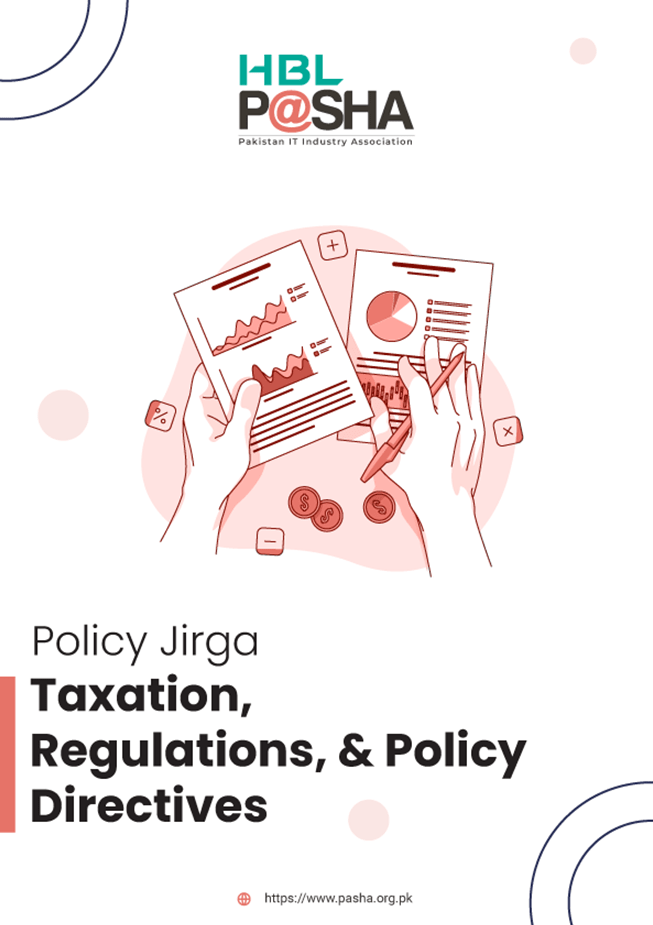Pakistan ranks 161st out of 190 economies in the “paying tax” indicator. The IT sector, now the nation’s largest services export industry, has achieved an impressive 88% trade surplus. However, complex taxation structures and high compliance costs threaten this significant growth potential. Tax regulations, such as the 5% tax on corporate debit cards compared to the 0.25% tax on IT exports, create an environment that stifles progress. To address these issues, P@SHA organized a policy roundtable titled “Policy Jirga: Taxation, Regulations, & Policy Directives” at ITCN Asia 2024 in Lahore. Apart from the issues discussed above, the roundtable addressed challenges including employee classification, tax evasion among remote workers, and the unattractiveness of corporate employment due to higher tax rates.
To address these challenges, P@SHA proposed solutions such as tax rate adjustments and reduced business costs for the IT sector. For the government to truly harness the IT sector’s potential, it must find a balance between generating tax revenue and promoting a competitive environment. Streamlining regulations, addressing the distinction between remote workers and employees, and offering tax incentives are crucial steps. Additionally, renegotiating trade agreements and utilizing existing programs will further support the IT industry’s growth while maintaining necessary tax revenues.


